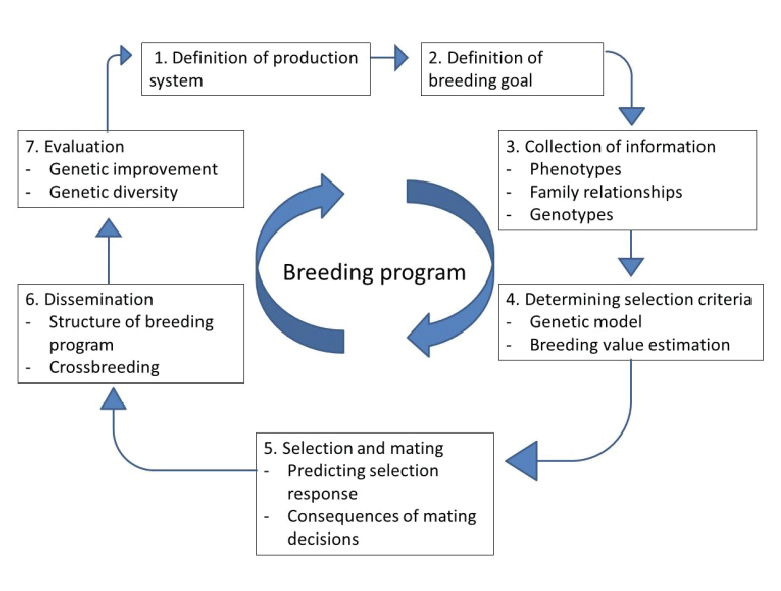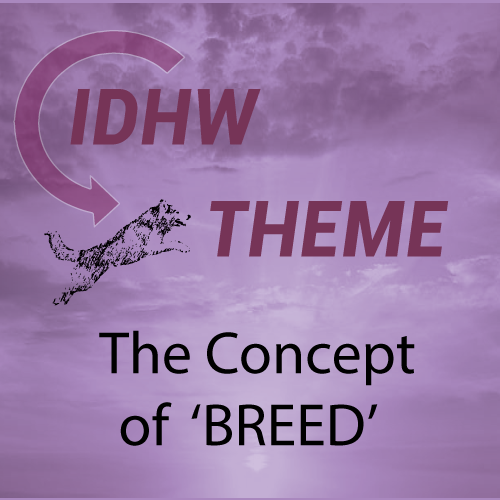Theme 1: The Concept of ‘Breed’ and how it influences health and welfare in dogs.
Brief Description:
How attitudes to the definition and understanding of breed affect actions for health; the history and future of outcrossing; public perception; conservation vs. development of breeds; the role/influences of standards; judging for health/function not just appearance; experience in other species.
Download Theme OVERVIEW: IPFD 4thIDHW Concept of breeds theme_OVERVIEW 09 May 2019.pdf
Pre-workshop resources:
Presentations and outputs from previous IDHWs, including resources on DogWellNet.com, e.g.
- Pre-meeting resources (INDEX): https://dogwellnet.com/content/ipfd-international-dog-health-workshops/ipfd-international-dog-health-workshop-4/4th-idhw-pre-meeting-resources/
Refereed publication: Moving from information and collaboration to action: report from the 3rd International Dog Health Workshop, Paris in April 2017
Required pre-workshop activities:
• Reading (for the scientific papers abstract, summary and results/conclusions is required reading, the other chapters are optional):
- Article by M Worboys 2019: Dog breeds are mere Victorian confections, neither pure nor ancient
(Internal) Dog breeds are mere Victorian confections, neither pure nor ancient
- Debate article by I Borelius, 2019: Why did cross breeding become taboo in the world of pedigree dogs?
(Attachement - PDF) Article-Ingemar Borelius -- Why did crossbreeding become taboo -PDF-
- Peter Friedrich – Rottweilers: Questionable Phenotypic Traits in the Rottweiler
- Dreger et al 2016. Whole genome sequence, SNP chips and pedigree structure: Building demographic profiles in domestic dog breeds to optimize genetic trait mapping.
- Farel et al 2015. The challenges of pedigree dog health: approaches to combating inherited disease
- Leroy et al 2015. Inbreeding impact on litter size and survival in selected canine breeds
- Lewis et al 2015. Trends in genetic diversity for all Kennel Club registered pedigree dog breeds
- Pedersen et al 2016. A genetic assessment of the English bulldog
- Jansson et al 2018. Pedigree data indicate rapid inbreeding and loss of genetic diversity within populations of native, traditional dog breeds of conservation concern
• Background
Presentations and output from the first IDHW, Breeds and varieties.
FCI procedure for International recognition of a new breed
FCI general and breed specific guidelines about crosses of breeds and breed varieties
- http://www.fci.be/medias/SCI-REG-CRO-RAC-VAR-1992.pdf NOTE: this link does not exist anymore... but you can download the pdf here: SCI-REG-CRO-RAC-VAR.pdf
Links to other DogWellNet Resources
- DogWellNet Members have access to texts from a recently published Book - Standards, Health and Genetics in Dogs/Standards, Santé et Génétique chez le Chien
GUINTARD C. and LEROY G. [Dir.], Standards, Health and Genetics in Dogs/ Standards, santé et génétique chez le Chien /, FCI-SCC-SKK ed., 2017, ISBN : 9 782746 696730, 400 p.
Here you will find files that contain the Authors, Abstracts and other extracted information from articles contained in CHAPITRE I - LES STANDARDS / CHAPTER I - THE STANDARDS and CHAPITRE II - SANTÉ ET GÉNÉTIQUE / CHAPTER II - HEALTH AND GENETICS.
Gregoire Leroy writes..."National Kennel Clubs are major stakeholders in the governance and regulation of dog breeding. As such, they have been the targets of major criticism related to dog health issues. It is therefore interesting to investigate to what extent health and welfare is a priority for kennel clubs (KCs), and what are the capacities and actions implemented to deal with those issues." " There is probably still a lot of progress to be made in term of information provision and collection, as well as planning breeding strategies considering dog health. In particular, finding a consensus in terms of constraints and priorities for breeding, is expected to be particularly challenging for Kennel Clubs and breed clubs in order to implement those strategies. Although the situations differ across countries, exchanges of experiences may surely help to find the most adequate solutions toward improvement of health and welfare. "
Primers
- Kor Oldenbroek and Liesbeth van der Waaij, 2015. Textbook Animal Breeding and Genetics for BSc students. Centre for Genetic Resources The Netherlands and Animal Breeding and Genomics Centre, 2015. (Internal: 614bcc19-036f-434e-9d40-609364ab26da_Textbook Animal Breeding and Genetics-v17-20151122_1057.pdf)



Recommended Comments
Join the conversation
You can post now and register later. If you have an account, sign in now to post with your account.
Note: Your post will require moderator approval before it will be visible.